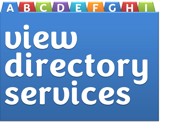Government funding is intended to cover the cost of providing 570 or 1,140 hours of high quality, flexible childcare per year, but many providers offer services that go beyond the scope of Funded Early Learning.
Providers are allowed to ask parents to pay for the following, but they cannot make it a condition of accessing the funded place:
Any hours in addition to the funded entitlement.
Consumables: e.g. food, drink, sun cream, nappies, wipes.
Additional services: e.g. drama, music, foreign languages, yoga, outings.
Deposits: these should be fully refundable – see below.
On-call charges for childminders – see below.
Transportation: e.g. picking up at a nursery outside of the funded hours.
Deposits can be charged for reserving a funded place, but they should be repaid in full if your child takes up the place. If the deposit is for privately paid for childcare it may be deducted from future charges rather than returned. The provider should not charge you an administration fee as a condition of accessing a funded place.
Childminders are allowed to apply a charge for being on-call. For example, if your child is at a nursery in the morning and with a childminder in the afternoon, the childminder may charge for being available in the morning should your child need picking up due to an emergency.
You should not be charged for more flexible hours, or to guarantee your child’s funded place. Government funding should not be used as a subsidy against the provider’s hourly rate – any privately paid for hours should be billed separately. If your child is at a setting morning and afternoon, providers can charge for the food at lunch but should avoid creating a break in your funded hours by charging you for the time. You should also have the option of supplying a packed lunch for your child.
When choosing your childcare provider, you should be aware of any additional charges and consider whether they add to the quality of the experience you want your child to have while in their care.
Any charges should be agreed and recorded in your Parent/Carer Agreement with the provider and you should be given a copy of this for your records. See the example Parent/Carer Agreement in the Download section.
 View all childminders
View all childminders